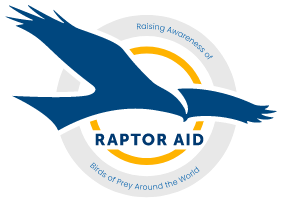BoP in Captivity - General Public Ownership
Did you know that anyone in the UK can own a bird of prey provided it has been bred in captivity and not wild taken? In previous years, most people who owned a bird of prey used it for falconry purposes. Now, a variety of species are available and people own birds of prey for a variety of reasons including to keep them as pets. This has meant more people have come into contact with birds of prey in their area and sometimes this can cause concern.
As mentioned, there is no specific law about who can own a bird of prey, other than it must have been bred in captivity and not taken from the wild. As birds of prey are protected by law in the UK it is a criminal offense to take or keep a wild bird of prey in captivity, including rescue cases. If you are concerned, you should contact your local wildlife crime officer if you do not feel you can speak to the owner of the bird(s).
Most bird of prey owners in the UK are very responsible and will often keep their birds and activities to themselves on private land with consent from the landowner. Birds of prey should only be exercised on land where permission has been granted; public parks and urban areas are particular areas which should not be used unless specific permission has been granted.
It is worth bearing in mind that captive birds of prey are covered by the Animal Welfare Act 2006 which is a very powerful piece of legislation. Here is a piece by the Hawk Board relating the Animal Welfare Act 2006 for bird of prey keepers.
An easier thing to glance at is the RSPCA's 5 freedoms fact sheet which is a broader example of what birds of prey require.
In some areas, people building aviaries may require planning permission and also, if they are planning on having more than one species, may want to consider speaking to the neighbours first. Noise pollution can also be an issue especially with certain groups of birds like owls and also species like Harris Hawks, which can be prone to being vocal during the day.
If you have any concerns it is advisable to try and speak to the owner of the bird(s) but if this is not possible then either contact your local wildlife crime officer or us at Raptor Aid for advice.
